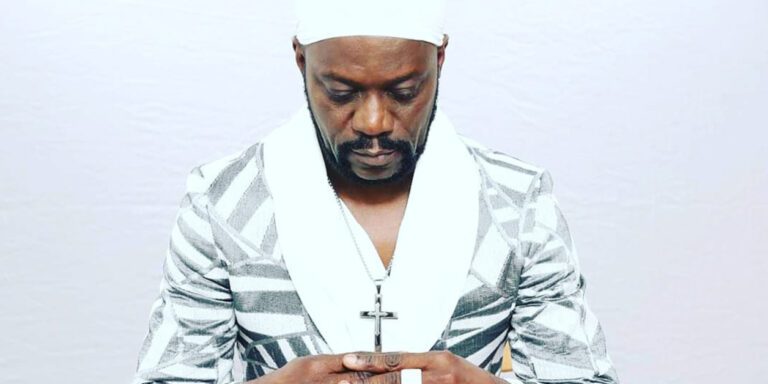Additional Information
Meiway, the pioneer of zoblazo, a style of music that has kept us singing and dancing for over thirty years, took the time to chat with us from his home in Paris to talk about his performance.
PAN M 360 : Thanks so much Meiway for being here. Are you excited for your performance in Montreal then?
Meiway : Listen, it’s always a pleasure to find an audience you’re not used to. And so, for someone like me, every time I come back there, it’s with a lot of joy, a lot of happiness.
PAN M 360 : Do you know that your last performance here is considered legendary?
Meiway : Ha, thank you very much. I remember it well. It was in 2016, I believe, more than six years ago.
PAN M 360 : How do you maintain the spark in your performance after thirty years?
Meiway : It’s the passion, it’s the love of the job, I love my job and so when you love what you do, whatever the circumstances, you give the best of yourself, you give the best of yourself and that’s what keeps me going so far. It’s a job that I love, it’s a job that I chose, it’s a job that I’m good at and that’s why so many years later, I practice it with so much passion.
PAN M 360 : Do you do anything to stay in good form?
Meiway : I’m a very athletic person. I jog, to keep my breath above all, because in what I do I need more breath to last for two hours on stage…so it’s a lot of jogging and then a lot of lifestyle choices, that is to say I don’t overindulge I eat when I’m hungry I drink when I’m thirsty, but I don’t go beyond that, I don’t overdo it. I am very measured.
PAN M 360 : So what does your average day look like?
Meiway : Usually, when I have nothing to do, I rest a lot because when I’m working, I don’t look at the watch. I can work 24 hours like that, straight away. In the studio, I can lock myself away for 24 hours, work nonstop. I can stop drinking water, go to the toilet or have a snack, but I’m here, I’m working until I reach the goal I want to achieve, I’m in the locked studio. So when I have time to rest, when I have time to regenerate my energy, I take advantage of it as now, but to prepare for the shows we also do rehearsals. So now and then when I have an idea. I take my smartphone, I record the melody and then, well, I try to compose and write in my spare time.
PAN M 360 : Actually, you touch on my next question. Your melodies are all so catchy, how do you find them? I really love songs like ‘Miss Lolo’ and ‘Nanan’.
Meiway : It’s already natural because when you’re good at a job, I think everything comes naturally. Now behind that, you have to work on the natural because well, in music, there are ribs all the same that you have to respect. And me when I write Miss Lolo, and that I am aware that the language I speak is a language that is not understood by everyone, I speak in Nzima, Appolo, at home in Côte d’Ivoire, and I know that this language is not understood by the whole world. And when you are aware of that, you say to yourself, OK, do I favor what I say in the song or do I favor the music?
So, me, right away, I said, OK, as I’m a minority in the whole world, they don’t understand my language, I’m working on music. And that’s how I work the melodies. You know, you can remove my songs, you can remove my voice from ‘Miss Lolo’, but if you only listen to the music, it will affect you. Because it’s music, it’s a melody that touches the heart, it’s a sensitive melody, it’s a melancholic melody, and that’s why I work a lot, I work a lot on my melodies to reach the majority, and then I put the lyrics on it as well.
PAN M 360 : How exactly do you describe zoblazo?
Meiway : So the Zoblazo is the music that I created and the dance too, with the handkerchiefs. Like this. We dance with handkerchiefs. So both are inspired by the Akan tradition. The Akan tradition goes from the Ivory Coast to Ghana, to Togo, to Benin, even to Nigeria, even a little to Cameroon. The big Akan group, it’s a tribe, dance like that. And then the music, I used the percussions of the music of the Akan tradition to make a single music.
So there you go, I was inspired by several folklore to do what I call zoblazo, and then the handkerchief dance, then I mixed that with modern music, with the bass guitar, the violins, the synthesizers, the brass. I wanted my music to be mixed, because the world is mixed, and that’s why everywhere I go, everyone seems touched by what I do, because this music is basically a very colorful, very mixed music.
PAN M 360 : And I hope your performance will be 400% Zoblazo.
Meiway : Haha, now it’s 1000%, we’ve exceeded 400%. That was in 1995 !
PAN M 360 : OK 1000%! Thanks again Meiway.
Meiway : Thank you! See you at the show.
























